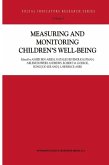This book is a response to the quandary. It brings together leading researchers in sociology and psychology to explain human egotism and altruism using not only their area of study but also bringing in research from economics and biology. Since this work brings together the research of many different disciplines, a complete account of solidarity and prosocial behavior is presented.
Dieser Download kann aus rechtlichen Gründen nur mit Rechnungsadresse in A, B, BG, CY, CZ, D, DK, EW, E, FIN, F, GR, HR, H, IRL, I, LT, L, LR, M, NL, PL, P, R, S, SLO, SK ausgeliefert werden.









